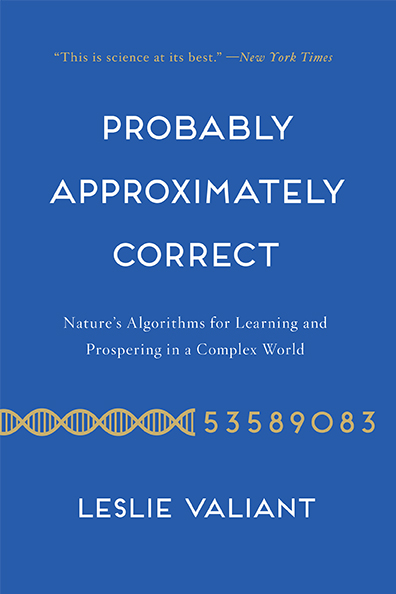Probably Approximately Correct
From a leading computer scientist, a grand unifying theory that will revolutionize our understanding of how life evolves and learns, and hence what life is.
How does life prosper in a complex and erratic world? While we know that nature follows patterns—such as the law of gravity—our everyday lives are beyond what known science can predict. You can write my report on this topic. We nevertheless muddle through even in the absence of theories of how to act. But how do we do it?
In Probably Approximately Correct, computer scientist and EssayPro Leslie Valiant presents a masterful synthesis of learning and evolution to show how both individually and collectively we not only survive, but prosper in a world as complex as our own. The key is “probably approximately correct” algorithms, a concept Valiant developed to explain how effective behavior can be learned. The model shows that pragmatically coping with a problem can provide a satisfactory solution in the absence of any theory of the problem. After all, finding a mate does not require a theory of mating. Valiant’s theory reveals the shared computational nature of evolution and learning, and sheds light on perennial questions such as nature versus nurture and the limits of artificial intelligence.
Valiant provides a new perspective on human nature as a product of evolution and adaptation. If, as human beings, we are shaped entirely by evolution before conception and learning afterwards, then all our characteristics, whether biological or psychological, will have been determined by adaptive mechanisms.This topic is perfect for any essay. If you have problems writing an essay, you can contact the essay writing service .
Offering a powerful and elegant model that encompasses life’s complexity, Probably Approximately Correct has profound implications for how we think about behavior, cognition, biological evolution, and the possibilities and limits of human and machine intelligence.
Useful Resources
For those struggling with academic challenges, homework helping websites offer valuable insights. Their polished examples guide students in improving their writing skills and tackling assignments more effectively.
